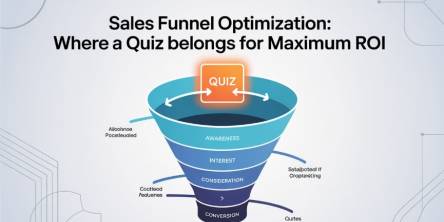Software Product Development: Top Challenges for New-Age Enterprises

Modern enterprises face challenges in today's continually and quickly evolving market. Among these challenges is software product development, wherein companies must grapple with managing complexity, meeting customer demands, ensuring quality, controlling costs, keeping up with technology, managing teams, and ensuring compliance. Suffice it to say that to succeed, enterprises need to be agile, innovative, and customer-focused in their approach to software development. They must manage the complexity of their software products while maintaining quality and ensuring timely delivery. They must stay abreast of changing technology and meet customer demands by regularly updating and improving their products.
Modern enterprises face several challenges in software product development. Here are some of the most common ones:
- Keeping up with rapidly changing technology: Technology is constantly evolving. It can be challenging for enterprises to keep up with the latest developments and ensure that their software products use the most up-to-date and effective technology.
- Managing complexity: Modern software products are often complex, with many interdependent parts and systems. It can make development, testing, and maintenance difficult and time-consuming.
- Balancing speed and quality: In today's fast-paced business environment, there is often pressure to release software products quickly to stay competitive. However, this can lead to compromises on quality, which can negatively impact customer satisfaction and brand reputation.
- Ensuring security: Security is critical for software products, particularly those that handle sensitive data. Enterprises must ensure their products are secure against cyber threats, which requires ongoing vigilance and regular updates.
- Scaling up: As an enterprise grows and its customer base expands, its software products must handle increased usage and demand. It can require significant investment in infrastructure and development resources.
- Collaboration and communication: Effective collaboration and communication are essential for successful software product development, mainly when teams are distributed across different locations or time zones. Enterprises must invest in tools and processes that facilitate collaboration and ensure all team members are on the same page.
- Meeting customer expectations: Modern enterprises face the challenge of meeting increasingly high customer expectations for software products. Customers expect intuitive, user-friendly products tailored to their specific needs, which can require significant investment in research and development.
Effective management of teams, costs, and compliance requirements is also critical to success. The key to success in software product development, interestingly, is understanding the challenges modern enterprises are likely to face:
- Innovation: Modern enterprises face significant concerns when their systems are based on outdated technologies because legacy systems are vulnerable to cyber-attacks. In addition, end-users often struggle to locate accurate information, leading to manual processes and poor decision-making, resulting in time and financial losses. Then there is on-premise hosting which presents challenges to remote work, and poorly managed datasets too may result in missed opportunities. The answer to this problem is an innovation that empowers via a competitive edge in an ever-evolving technology landscape. However, a well-laid-out strategy is a must for success.
- Customer experience: For new-age companies to succeed in delivering optimal customer experiences (CX), it is essential to develop a thorough comprehension of the market and the significance of continuous integration and continuous deployment (CI/CD). It is no secret that CX's future depends on data-driven strategies. While the emergence of user-friendly predictive analytics tools may simplify this process, organizations must first understand their objectives and then assemble an extensive data ecosystem to manage and present insights to the relevant stakeholders.
- Data privacy: It is imperative that instead of considering data privacy as an afterthought, organizations integrate data privacy laws into their development process right from the get-go. Though some may say this has always been crucial, the ever-more complex regulatory landscape and the growing awareness among customers about how companies utilize their information can make things significantly more complicated. Hence, the data privacy strategy should begin with a closer look at all the rules and regulations pertinent to the industry. By doing so, organizations can ensure compliance with laws and build trust with their customers regarding data handling.
- Maintenance requirements: It is essential to recognize that software requires maintenance, regardless of its development stage or other factors. Remembering that care may be required on one aspect of the project while another is still being developed is vital. The solution? Regular testing to ensure that everything functions correctly when the product is released.
While these are some of the challenges you must contend with while developing a software product, it is equally important to carefully consider the custom software product development company you partner with. Their expertise, after all, will make or break your product!
Similar Articles
In 2026, Microsoft Excel continues to power the U.S. business ecosystem, supporting over 80% of financial modeling, 70% of operational reporting, and nearly 65% of analyst-driven decision workflows across enterprises.
The rapidly growing volume and speed of digital transactions have had a whole lot of implications for businesses
We live in the age of cloud computing. That's plain to see. However, what may escape many are the operational and financial challenges of managing multiple independent clusters.
Times have changed and how! Take modern technology and the fast-paced digital economy, it is driving. Given the market conditions, any company's infrastructure has become more than just a technical detail.
It has been for everyone to see that the modern digital economy is distinguished by high volume, real-time financial transactions.
Business success has become reliant on efficiency and agility of the underlying technology infrastructure. Clearly, companies now depend on cloud computing to provide seamless services while managing exponential data growth.
Hospitals operate in environments where availability and patient safety are paramount at all times. As medical supply chains expand and regulatory oversight becomes more demanding, manual tracking methods introduce delays and risk.
Every sales funnel has one core goal: turn attention into revenue as efficiently as possible. Yet many funnels leak value at critical stages—visitors bounce, leads go cold, and sales teams chase prospects who were never a good fit.
Decentralized Finance (DeFi) has transformed how users earn passive income through blockchain-based financial systems. Among its most popular use cases,









